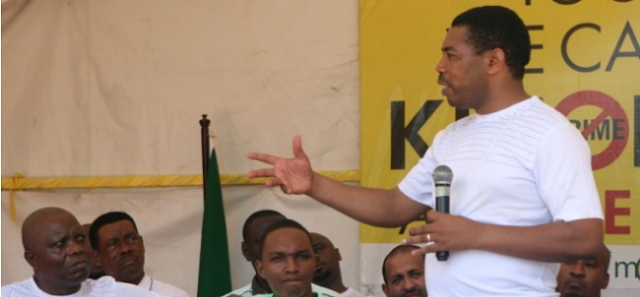
The Minister for Home Affairs Mwigulu Nchemba has expressed concern over outdated rules undermining harmony in the police force, especially in scaling remuneration and compensation. Addressing a police occasion, the minister declared that in some areas the police force was operating with colonial regulations whose purpose was to discriminate between the officer corps drawn from immigrant populations and ordinary soldiers, recruited from local people.
Colonial era regulations were intended to exploit Africans but mental maps and scheduled existing today retain that basis, which lets down the force and sows disharmony with the police force leadership, he said.
He was speaking at a Kinondoni Police Family Day in Dar es Salaam, where he also directed the police force leadership to redraw rules relating to remuneration and compensation to end discriminatory elements so that police officers are treated like other public servants.
“I have decided to conduct a countrywide visit, to observe the lives of police officers. One sad situation I met was the way compensation to police staff was conducted, as it was either denied or grossly delayed, making officers live poorly as if they had never served the public in that capacity or any other,” the minister lamented.
The minister said that he visited a number of ex-police officers falling in that situation, being injured in fighting robbers but used many years for their compensation to be paid. When he consulted the relevant organs in the upper echelons of the police force, the answer was that they were still conducting “investigations” on the matter on those cases.
At the family day event, Nchemba directed top police officers to rectify the compensation mechanism, as no need existed for an investigation committee in many cases, “especially where an officer was injured while carrying out a specific assignment.”
The minister reminded the public that unlike other parts of the armed forces who enter into armed engagement after the president has declared war, the police are at war all the time and at anytime. They might even be off-duty and are called for an emergency to combat crime, so if they are injured or wounded they must be rapidly compensated.
“For instance, robbers emerge somewhere and a police officer has to find ways to deal with the situation. Unfortunately, the officer gets injured and people testify the officer’s help. Why would compensation be late or investigated to this officer, queried Nchemba.
The force also seemed to be undermining the staff in denying rightful remuneration and allowances, with most officers found to be receiving minimal payments in relation to their positions.
Shortage of staff housing was a serious challenge facing police officers, in which case the police force leadership has to issue allowances to those needing to rent elsewhere while the government sets out to resolve the problem, he said.
The minister’s tour to observe the living conditions of police officers was still going on despite those directives, he stated, noting that he would convene a session with department heads a Police Force Headquarters to set ways to sort out these challenges.
Emphasizing the need to find a way to go forward and reinforce service delivery to the fighting force as a whole, he said that police officers ought to be free of stress in order to do their work properly, having to handle firearms and risk their lives at any moment.
A police officer who requested anonymity said the minister’s tour had come at the right time as “they were serving as slaves for a long time.”
“Called to help in all disasters, we subsist on small salaries; allowances directed to us are smaller than other public servants. The minister’s determination to clear all these setbacks will go a long way to reduce corruption in police work. My doubt is whether the way forward will be found and put into practice,” he asserted
Ugandan socialite Zari is undeniably hot and Diamond Platnumz cannot be blamed for going kookoo for her, Besides her looks, she is also ambitious and rich. Born on 23rd of September 1980, Zari grew up in Jinja and after high school she moved Kampala where she performed karaoke in hang-outs. She later moved to London and acquired a diploma in cosmetology. She now lives in South Africa where she runs cosmetics shop while pursuing a career in music. She shared some of her never before seen photos from back in the day and she was still hot. Check her out












Post a Comment